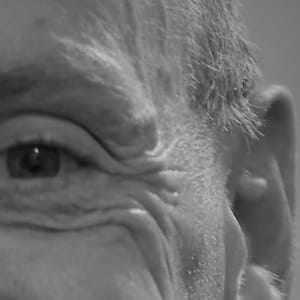have eyes in the back of one’s head: Idiom Meaning and Origin
What does ‘have eyes in the back of one's head’ mean?
The idiom "have eyes in the back of one's head" means to be exceptionally observant or aware of one's surroundings. It implies a heightened ability to notice things that others might miss.

Idiom Explorer
The idiom "look over one's shoulder" means to be cautious or fearful of potential danger or competition, often due to a sense of insecurity or paranoia.
The idiom "lay eyes on" means to see or look at something. It implies that the person looking at something has a strong desire or interest in it.
The idiom "keep watch" means to stay vigilant or be on the lookout for potential dangers or threats. It implies being aware and alert to ensure the safety or security of someone or something.
The idiom "keep one's head on a swivel" means to remain alert, vigilant, or attentive in order to be aware of one's surroundings and potential dangers or threats. It emphasizes the need to be constantly observant and ready to react quickly.
The idiom "keep one's head down" means to avoid drawing attention or staying out of trouble in order to stay safe or unnoticed in a dangerous or difficult situation.
The idiom "keep one's eyes peeled" means to stay alert and watchful, paying close attention to one's surroundings in order to notice any important or significant details or changes.
The idiom "keep one's eye on the ball" means to stay focused on the task or goal at hand without getting distracted. It is often used in sports to emphasize the importance of concentration and not losing sight of the main objective.
The idiom "keep one's ears open" means to be attentive and listen carefully for information or opportunities.
The idiom "keep a weather eye open" means to be vigilant or observant, particularly in regard to potential dangers or changes in circumstances.
The idiom "keep an eye peeled" means to be vigilant or watchful, paying close attention to one's surroundings in order to notice any important or unusual developments.
Inexplicable Paranormal Ability
The idiom "keep one's eyes peeled" is another expression that conveys the importance of being observant. This idiom means to remain alert and watchful, paying close attention to one's surroundings in order to notice any potential danger, interesting or important things.
Similar to having eyes in the back of one's head, keeping one's eyes peeled is a way to emphasize the need to be attentive and vigilant. It suggests that by being constantly aware of what is happening around us, we can be better prepared to respond to any situations that may arise.
The idiom "have an eye for" is yet another phrase that relates to the concept of keen observation. This idiom implies that someone has a natural talent or ability to recognize and appreciate certain qualities or details that others may overlook.
By having an eye for something, whether it's art, fashion, or even opportunities in business, a person can quickly identify what is valuable or worth paying attention to. It is a skill that often comes with experience and an understanding of what to look for.
Finally, the idiom "keep an eye peeled" is another variation of the expression "keep one's eyes peeled." It has the same meaning of staying alert and watchful, but with a slightly different phrasing.
By using the word "peeled," this idiom suggests the idea of actively peeling back layers or removing obstacles in order to see more clearly. It conveys the notion of actively seeking out information or being on the lookout for anything of importance or interest.
These related idioms further emphasize the importance of being observant and attentive. Whether it's by having eyes in the back of our heads, keeping our eyes peeled, having an eye for something, or keeping an eye peeled, all of these expressions encourage us to be mindful of our surroundings and to pay attention to the details that can often make a difference.
Having eyes in the back of one's head is not a literal phenomenon, but it serves as a powerful metaphor for being exceptionally aware and perceptive. It highlights the idea that being observant is a valuable skill that can help us navigate through life more effectively and efficiently.
So, the next time you find yourself in a situation where you need to be on the lookout, remember these idioms. Keep your eyes peeled, have an eye for important details, and stay vigilant. By doing so, you'll be able to stay one step ahead and make the most of every opportunity that comes your way.
Example usage
Examples:
1. The teacher seems to have eyes in the back of her head. She always catches the students misbehaving, even when she's facing the other way.
2. My mom must have eyes in the back of her head because she always knows when I'm up to something.
3. The security guard at the museum had eyes in the back of his head. He quickly spotted the person trying to steal a valuable artifact.
More "Perception" idioms



